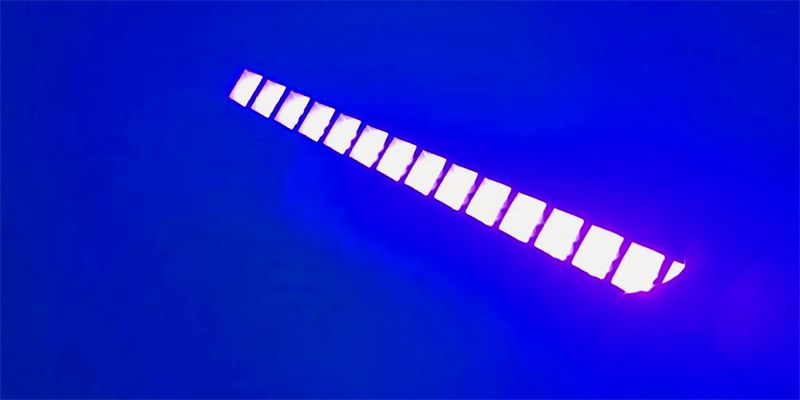In various contexts, UV lights and black lights are often mentioned. But are they the same? Understanding the differences between UV lights and black lights is essential for using them effectively. While they share some similarities, their applications and functionalities vary significantly. This article explores the distinctions, uses, and benefits of both UV lights and black lights.
What is a UV Light?
UV light, or ultraviolet light, is a type of electromagnetic radiation. It falls between visible light and X-rays on the electromagnetic spectrum. UV light is invisible to the human eye but can cause certain materials to fluoresce, making them visible.
Types of UV Light
There are three types of UV light:
- UVA (315-400 nm): This type of UV light is the least harmful and is often used in black lights.
- UVB (280-315 nm): This type has moderate energy and can cause skin burns and damage.
- UVC (100-280 nm): This is the most dangerous type of UV light but is mostly absorbed by the Earth’s atmosphere.
What is a Black Light?
A black light is a type of lamp that emits long-wave UVA light. It causes certain substances to fluoresce or glow in the dark. Black lights are often used in entertainment, security, and artistic applications.
Common Uses of Black Lights
Black lights are used in various settings, including:
- Entertainment: Nightclubs and concerts use black lights to create glowing effects.
- Security: Detecting counterfeit money and verifying IDs.
- Art: Creating fluorescent art and posters.
Differences Between UV Light and Black Light
While UV lights encompass a range of ultraviolet light, including UVA, UVB, and UVC, black lights specifically emit UVA light. UV lights are used for sterilization and scientific purposes, whereas black lights are primarily used for entertainment and security applications.
Wavelengths and Emission
While all black lights emit UV light, not all UV lights are black lights. Black lights specifically emit UVA light, typically around 365 nm. UV lights can emit UVA, UVB, or UVC light, depending on their intended use.
Applications and Uses
UV lights have broader applications, including medical sterilization, forensic analysis, and air purification. Black lights are more commonly used for entertainment and artistic purposes.
Benefits of Using UV Lights
Sterilization and Disinfection
UVC lights are effective in killing bacteria and viruses. They are commonly used in hospitals and laboratories for sterilization purposes.
Air and Water Purification
UV lights are used in air purifiers and water treatment systems to eliminate harmful microorganisms, ensuring cleaner air and water.
Forensic and Scientific Applications
UV lights are essential tools in forensic science for detecting bodily fluids, fingerprints, and other evidence. They are also used in scientific research for various experiments.
Benefits of Using Black Lights
Black lights create stunning visual effects in entertainment settings and artistic displays, making fluorescent materials glow vividly. They are also crucial for security and authentication, helping to detect counterfeit currency and verify identification documents.
Entertainment and Art
Black lights create stunning visual effects in nightclubs, concerts, and artistic displays. They enhance the appearance of fluorescent materials, making them glow vividly.
Security and Authentication
Black lights are used to detect counterfeit currency and verify identification documents. They reveal hidden security features that are not visible under normal light.
FAQs
1. Is a UV light the same as a black light?
No, a UV light encompasses UVA, UVB, and UVC lights, while a black light specifically emits UVA light to create a glowing effect.
2. Can UV lights be harmful?
Yes, UVB and UVC lights can be harmful and cause skin burns or eye damage. Always use them with caution and proper protection.
3. What are common uses for black lights?
Black lights are commonly used in entertainment settings, such as nightclubs and concerts, as well as for security purposes to detect counterfeit money.
4. How do black lights work?
Black lights emit UVA light, which causes certain materials to fluoresce or glow in the dark. This effect is used in various entertainment and security applications.
5. Can UV lights kill bacteria and viruses?
Yes, UVC lights are effective in killing bacteria and viruses. They are widely used in medical and laboratory settings for sterilization.
6. Are there any safety precautions for using UV lights?
Yes, avoid direct exposure to UVB and UVC lights, and use protective equipment when handling them to prevent skin and eye damage.
Conclusion
The differences between UV lights and black lights is crucial for selecting the right one for your needs. Whether for sterilization, entertainment, or security, each type has unique benefits and applications. At Extreme Air Duct Cleaning and Restoration Services, we prioritize using the best tools and technologies to ensure your safety and satisfaction. For more information on our services and how we can help improve your indoor air quality, Contact us.


